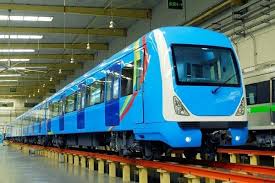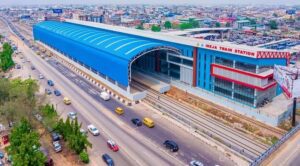
Concessionaire may cripple $3.2bn e-Customs project
By Seun Ibiyemi
More than two years after the Federal Executive Council (FEC) initially approved the modernisation project of Nigeria Customs Service (NCS) also known as e-Customs project, a conflict among the concessionaires is set to cripple the $3.2billion contract already signed by the federal government.
This is coming as the initial lead concessionaire Bionica Technology, says it hasn’t exited the contract contrary to the reports by the Minister of Finance, Mrs. Zainab Ahmed that the company pulled out following a disagreement in sharing stakes in the project.
Findings by journalists also revealed that Bionica is considering litigation that could see the project delayed indefinitely, even as the company is concluding plans for a press conference to unveil some unprocedural approaches utilised by the Finance Ministry in the contract.
Recall that the Finance Minister, last week, said the implementation of the e-Customs project would now commence since the party that was uncomfortable with the agreement had opted out, despite efforts by the government, through the office of the Attorney General of the Federation, AGF, to mediate.
Speaking to journalists at the weekend, an official of Bionica, Mr. Umaru Tanko challenged the Finance Minister to provide documents indicating that the company pulled out of the concession.
While confirming that the company had disagreed with other partners in the concession, he argued that the Ministry of Finance facilitated the concession outside known regulations and procedures.
His words, “I really don’t want to comment on this now because we are still weighing the best approach on this matter. Shortly, we will reach out to the press and provide documents and evidence of what has transpired with the e-Customs project. The procedure was affected and there are obvious irregularities that the government has to correct, hence, this project will certainly suffer a setback.”
When asked if the conflict in the concession was linked to the pulling out of one of the concessionaires (Bionica), he said, “Where is the proof that any of the concessionaires pulled out? The Finance Minister didn’t provide any document to show that any of the concessionaires pulled out. There is no evidence that any concessionaire pulled out and the concessionaire we are talking about is the lead sponsor and promoter of the project, Bionica. Bionica is the company that developed the project and without Bionica the government is handing over the business to facilitators.”
Meanwhile, industry stakeholders have continued to express disapproval on the e-Customs project, describing it as a confirmation that NCS has been relegated to just revenue collection with concessionaires projecting $176billion government revenue in 20 years, at the expense of trade facilitation and national security.
Some veteran freight forwarders have also raised concerns on the secrecy surrounding the contract, even as they lamented absence of stakeholders engagement on the exercise.
Industry observers have also faulted federal government recent investments in scanners amid plans to concession that aspect of the Service as FEC approved in 2021, the contract sum of $18.12 million and N3.255 million for the acquisition of three (3) Rapiscan Cargo Mobile Scanners awarded to Messrs Airwave Limited and another contract of N280,992,888:75 inclusive of VAT for 5 units of fast Ballistic Reverie Assault Boats/5 units of Patrol Boats with assorted accessories awarded to Messrs C.Y. West Africa Limited.
With these scanners already deployed to Tin Can Island Port, Apapa and Onne seaports, industry stakeholders have described the move as a waste of federal government’s scarce resources.
In a bid to dissipate the backlash which has trailed the Customs concession, the NCS spokesman, Mr. Timi Bomodi has encouraged stakeholders to support the initiative as it would enhance Customs operations for imports and exports.
“As efficient as NICIS II is, it still has limitations. We complain about alerts and serial interventions on transactions because we have a less than efficient audit mechanism. With this system examinations and release of import/exports will be subjected to live feeds across multiple platforms. This will check arbitrary decision making at all levels and will guide interventions.”
“Many aspects of the Customs job are still not automated. A classic example is escort operations for goods in transit. Today, because of a shortfall in manpower, requests for escort takes quite a while before approval. This causes delays in the delivery of transit containers. With an automated e-tracking system the delays will be a thing of the past,” he said.
Bomodi also assured that border management and control as well as interface with other government agencies will be enhanced as Customs moves into an era of high efficiency which will be tech-driven.



